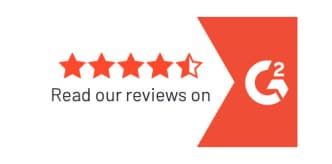Whether you’re just starting or have been in business for decades, a 401(k) may be an excellent addition to your business.
That’s because a 401(k) comes with various benefits, from tax deductions and credits to increased employee retention and satisfaction. But, there are also several things business owners must consider when starting a 401(k) for their business. In this article, we’ll explore how a 401(k) can reduce your taxes as a business owner.
Read on to learn more.
Personal Tax Savings for Owners and Employees
One of the best advantages of a 401(k) is it allows both owners and employees to save for retirement. And fortunately, retirement accounts like 401(k)s come with some unique tax advantages that separate them from a regular investment account.
Let’s explore the two primary options below.
Traditional (pre-tax) contributions
A traditional 401(k) means all contributions happen before taxes.
This allows both owners and employees to contribute to their 401(k) without paying federal or state income taxes on those contributions. That can create significant tax savings now by lowering their taxable income. Then, traditional 401(k) funds grow tax-free until retirement, and distributions are taxed as ordinary income during retirement.
It’s important to know that there are annual contribution limits for participants and employers, with special catch-up provisions for employees and owners over age 50. Be sure to check the latest guidance from the IRS, as these contribution limits change over time.
Roth (after-tax) contributions
With a Roth 401(k), all contributions are made after taxes.
This means that instead of creating a tax deduction now, participants pay taxes today in exchange for tax-free growth and tax-free distributions in retirement. This can be very appealing for participants or owners who anticipate being in a higher tax bracket during retirement and want to lock in their favorable tax rate now.
While this does not create a tax deduction like a traditional 401(k), it can be a great way to diversify tax treatment. In addition, just like traditional 401(k)s, Roth 401(k)s have annual contribution limits for the participant and employer, with special catch-up provisions for participants age 50 or over.
Remember to check the annual contribution limits directly on the IRS website.
Profit-sharing contributions
In addition to the typical matching contributions, businesses can choose to offer profit-sharing contributions to their participants. These contributions are tax-deductible for the previous tax year. This means businesses have time to determine how much they can afford to provide.
Participants tend to prefer this type of benefit, because it doesn’t increase their taxable income, often making it more valuable than a bonus payment. It also doesn’t count toward the IRS deferral limit, making it particularly helpful for highly compensated employees who may have their 401(k) contributions maxed.
While there are several different profit sharing methods available, business owners can benefit from using the new comparability calculation. It typically provides more compensation for those who are older and make more money, which can give owners the ability to maximize the contributions to their own accounts.
Business Tax Savings
In addition to the tax savings and advantages as a participant in your own 401(k), there are several business tax savings opportunities to consider.
Deductible Expenses
Since a 401(k) is an employee benefit, the costs associated are deductible expenses.
This includes contributions you make to employee accounts and any administrative costs that come with establishing and maintaining your 401(k) plan. For example, many 401(k) plans include fees for third-party administration, recordkeeping, auditing, and hiring outside consultants.
These deductible expenses are a great way to save money at tax time while offering a high-quality benefit to your employees.
Offsets compensation
Another unique way that 401(k)s can reduce business taxes is by offsetting compensation.
When creating compensation packages, employers must value the benefits and compensation offered. Often, this means when employers provide a 401(k) with matching contributions, they can either reduce or forego an upcoming raise as their employee is receiving additional compensation through the 401(k) plan.
This offers unique tax savings for employers because of the way matching contributions are taxed.
In essence, employer matching contributions to 401(k) plans are always pre-tax, meaning they aren’t subject to Federal Income Tax, Social Security, Medicare, or other payroll taxes. This means that if employers offset payroll wages for 401(k) contributions, they can save the additional amount they would have paid in payroll taxes while creating a deductible expense.
Tax Credits
Lastly, specific tax credits are available to business owners to help offset the costs of establishing a retirement plan like a 401(k).
It’s important to note that you can either claim the tax credit or deduct the startup expenses, but you cannot do both. For tax years 2020 and beyond, employers may qualify for a credit of at least $500 and up to $5,000 for 50% of their startup costs. Credit amounts depend on your situation, with the following options:

Be sure to work with your accountant or tax professional to verify eligibility and visit the IRS website for additional details.
Potential tax credits through SECURE Act 2.0
In addition to the current tax credits, the SECURE Act 2.0 would expand tax credits for small businesses with a 401(k). The bill is currently undergoing debate in the Senate after passing through the House in a nearly unanimous vote on March 29, 2022.
Some key highlights of the bill include expanding the current tax credit to cover 100% of start-up costs (up to $5,000) and creating a new tax credit that offers employers a credit for a percentage of plan contributions made for the first four years, up to a proposed per-employee cap of $1,000.
401GO is Here to Help
At 401GO, we provide small business 401(k) plans powered by an easy-to-use platform. Our streamlined approach allows you to get up and running in just minutes with simple and affordable pricing to fit your unique business.
You can learn more on our website or click below to get started today.



